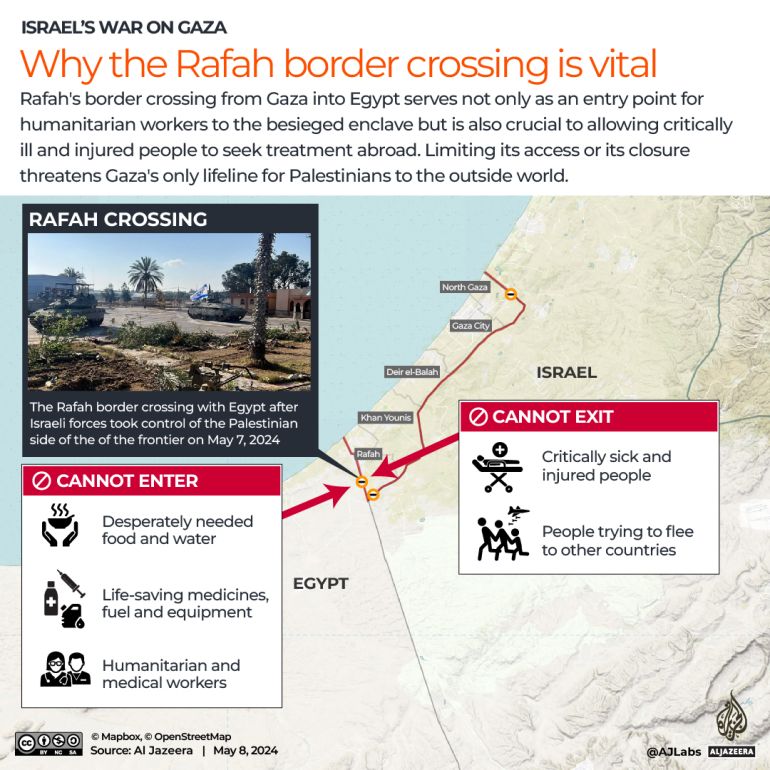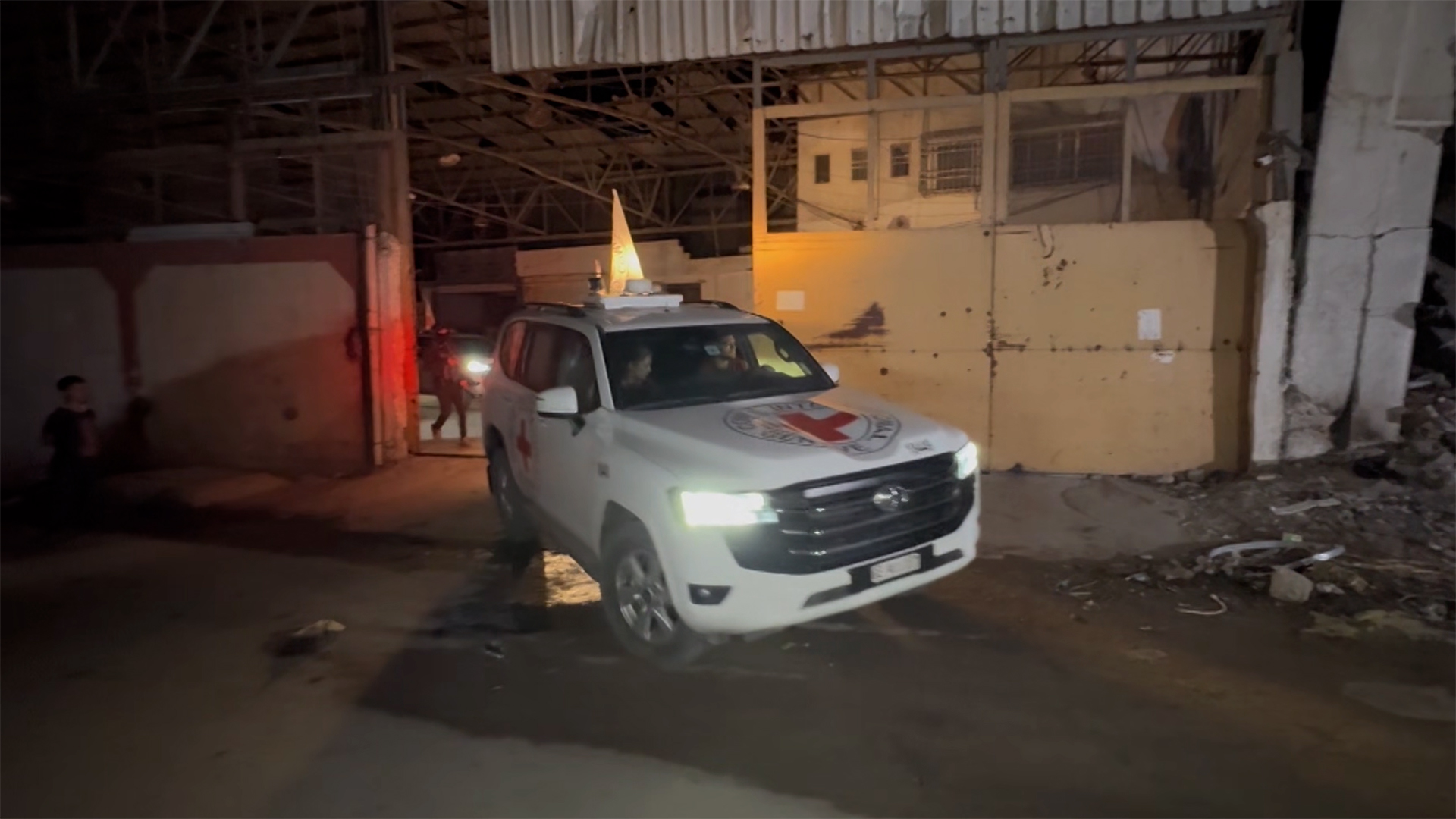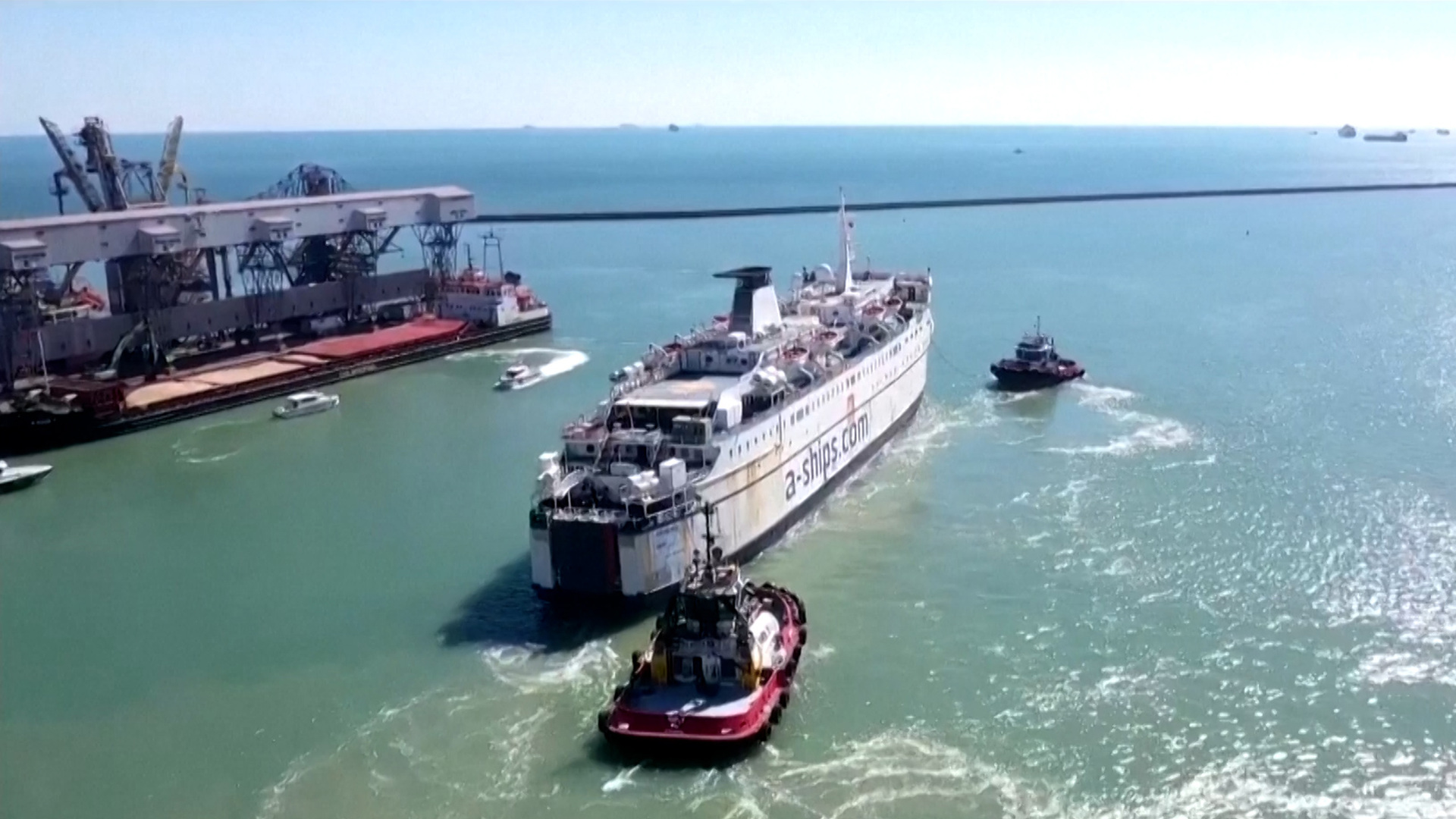Israel has imposed new restrictions on aid entering the besieged Gaza Strip and will not open the Rafah crossing as planned, while Israeli forces killed several people in the Palesitinian territory as the Israel-Hamas ceasefire came under growing strain.
Israel notified the United Nations on Tuesday that it will only allow 300 aid trucks – half of the number it originally agreed to – daily into the Gaza Strip from Wednesday.
Olga Cherevko, a spokesperson for the UN Office for the Coordination of Humanitarian Affairs (OCHA) in Gaza, confirmed the UN had received the note from the Coordination of Government Activities in the Territories (COGAT), the arm of the Israeli military that oversees aid flows into Gaza.
The COGAT note said no fuel or gas will be allowed into the war-torn enclave except for specific needs related to humanitarian infrastructure.
Reporting from Gaza City, Al Jazeera’s Hani Mahmoud noted that allowing 300 trucks of aid each day was “not nearly enough” for famine-stricken Gaza.
“Three hundred is not enough. It’s not going to change anything,” he said.
Israeli authorities also announced the Rafah border crossing between Gaza and Egypt will remain closed.
The restrictions came hours after Israeli forces killed at least nine Palestinians in attacks in northern and southern Gaza, medical sources told Al Jazeera.
At least six Palestinians were killed by Israeli forces in Gaza City, and three others were killed in Khan Younis.
Sources from al-Ahli Arab Hospital told Al Jazeera Arabic on Tuesday that Israeli soldiers killed five Palestinians in the Shujayea neighbourhood of Gaza City.
The Israeli military said it opened fire to remove a threat posed by people who approached its forces in northern Gaza.
The attacks come four days after a ceasefire between Israel and Hamas took effect, preparing the way for an exchange of captives and partial Israeli withdrawal from Gaza.
The ceasefire is the first phase of US President Donald Trump’s proposal for ending Israel’s war on Gaza, which has killed at least 67,913 people and wounded 170,134 since October 2023, according to Palestinian health authorities. The remains of thousands of other people are estimated to be under the rubble in Gaza.
At least 1,139 people were killed in Israel during the Hamas-led attack on October 7, 2023, and more than 200 others were taken captive.
Under the terms of the ceasefire, Hamas and Israel carried out an exchange on Monday that saw the release of nearly 2,000 Palestinians imprisoned in Israeli jails and 20 Israeli captives held in the Gaza Strip. Some 154 prisoners were exiled to Egypt.
Hamas was also due to return the remains of 28 dead captives on Monday, but the group only handed over four coffins.
Trump’s ceasefire plan provided a mechanism if that handover didn’t happen, saying Hamas should share information about deceased captives and “exert maximum effort” to carry out the handover as soon as possible.
Hamas said that it would transfer the remains of four more deceased Israeli captives on Tuesday, and the Israeli military said that the Red Cross had received the bodies. The military later said the bodies had arrived in Israel, where they would undergo forensic tests.
The Israeli military earlier accused Hamas of violating the ceasefire “regarding the release of the bodies of the hostages”.
Trump noted the delay in handing over the remains of the deceased captives in a post on his Truth Social platform.
“THE DEAD HAVE NOT BEEN RETURNED, AS PROMISED! Phase Two begins right NOW!!!” he wrote.
Hamas has previously said recovering the bodies of some captives could take more time because not all sites where they were held are known, and because of the vast Israeli destruction of the enclave.
“The headline here is, Israel is already starting to put threats of restricting aid going into Gaza for what they say is the slow work by Hamas to get the bodies of the deceased captives back to Israel,” Al Jazeera’s Gabriel Elizondo said, reporting from the UN.
@ajplus Israel unilaterally broke the last ceasefire in Gaza. AJ+ spoke to journalist and analyst Omar Rahman about what might make this deal different. #Gaza #Ceasefire #Israel #PeaceDeal #Palestine
UN urges more aid deliveries
The UN and the International Red Cross called for all crossings into Gaza to be opened to allow desperately needed aid into the enclave. The UN had 190,000 metric tonnes of aid waiting and ready to go into Gaza, OCHA spokesman Jens Laerke said on Tuesday.
UNICEF spokesman Ricardo Pires, meanwhile, said the UN Children’s Fund (UNICEF) had 1,370 trucks ready to enter Gaza.
“The level of destruction, again, is so huge that it will take at least 600 trucks a day, which is the aim that we have,” he said. “We’re far from that.”
The World Health Organization (WHO) also stressed the need to send more aid into Gaza.
“We need to scale up the delivery of medical supplies because the pressure on hospitals is not going to ease overnight,” WHO spokesman Tarik Jasarevic told reporters.





